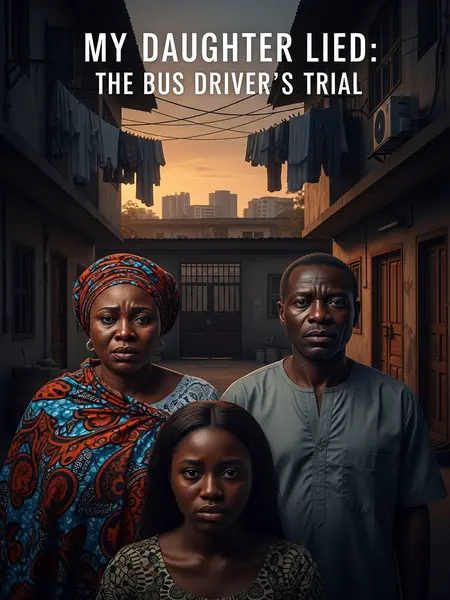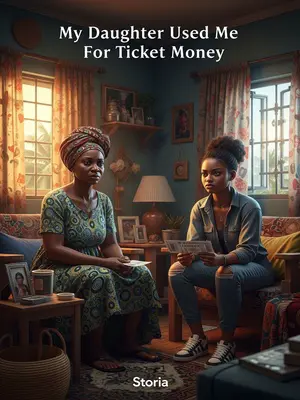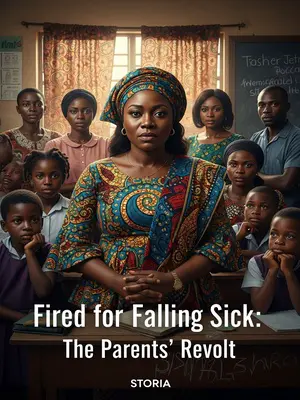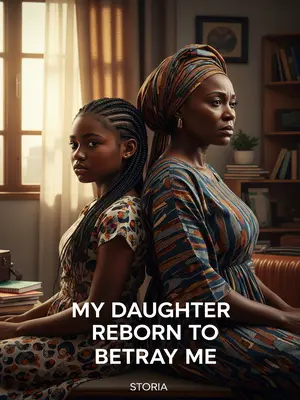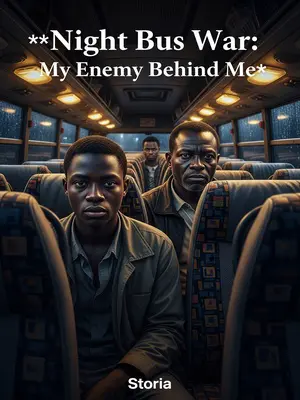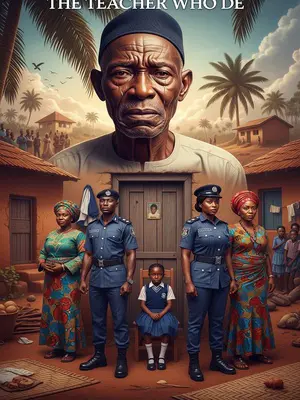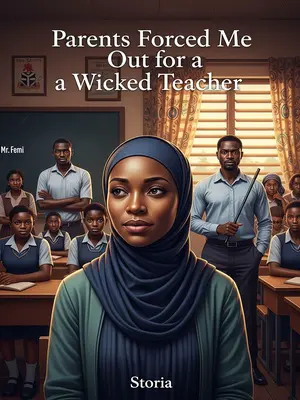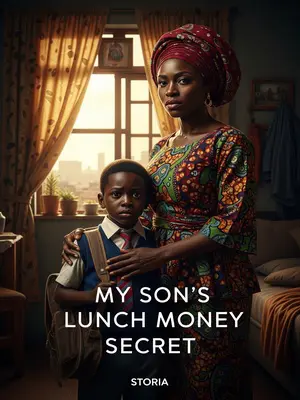Chapter 2: Inside the Family
My daughter just quick shake head, say I be best papa for this world, but apart from me, no man good.
She hold my hand, smile that special way children dey smile when dem wan escape trouble. “Daddy, na only you dey different!” The stubborn look for her face reduce small, but I see say she mean wetin she talk. My chest tighten, but I force laugh.
I go tell my wife. She just laugh, say make I no worry, “Children for this age dey always like their own gender pass. Na normal bias.”
My wife, Adaora, dey arrange ogbono soup for kitchen, aroma of fried plantain mix with smell of kerosene stove. She talk, “No mind am. When I small, I dey chase all the boys for yard with broom. Na phase, she go outgrow am.” Her voice get that soft laugh wey only mothers sabi.
She even talk say e good as our daughter no too like men. This world na dark forest—you no fit know who dey trust. Better make she dey careful with strange men.
Adaora look me over her glasses, palm-oil stain for wrapper. “My brother, this world dey wicked. Even you dey hear gist every week. Make she dey suspicious small, e go help am.” Her voice get weight, full of all the wahala wey woman dey see for Naija. I reason am.
Her words make sense, so I leave the matter.
I siddon outside with my Guinness, night breeze dey blow, neighbours still dey gist, and I dey wonder how small bias fit shape person life. I tell myself say if I no push too much, my pikin go learn by herself. But I promise myself say I go dey watch her well.
As for Baba, after my daughter show am pepper like that, the cat run away. Sisi sef no last—one stubborn calico cat chase am commot.
Compound come quiet without their night fight and meow. Even Mallam Danlami miss them, sometimes e go sigh, “E no good to show partiality—even animal no like am.”
Few days later, my daughter just talk say somebody “touch” her. We shock, ask her wetin happen.
We dey chop dodo that evening, aroma still dey hang for air, when she just talk am, face serious, voice low. My wife nearly choke on her Fanta, my fork fall from hand. I ask her to talk am again, to be sure.
“This afternoon, when I wan come down from school bus, the school bus driver stop me. He say unless I allow am touch my yansh, he no go let me come down. I fear well well, so...”
The words heavy, hang for air like Harmattan dust. My wife hand dey shake, my heart dey beat like generator.
My daughter still talk say four other girls dey bus that time, driver do same thing to them. She call their names, all girls from her class, say dem dey cry, dey fear. My wife squeeze her hand, “You no do bad. Thank you for telling us.”
As we realise how serious e be, I contact the other girls and their parents. After we confirm say my daughter no dey lie, we rush her go police station to report.
I dey dial number with hand wey dey shake. All the parents just dey shout, dey fear. We pack our children enter two keke napeps, squeeze them, ride go station for hot sun.
Because all the victims na small children, police treat the matter sharp sharp. Within one hour, Baba Musa—school bus driver, retired soldier, secondary school cert, never marry—dem arrest am.
DPO call him boys make dem act fast. Baba Musa arrest turn small gist for area. Neighbours gather dey whisper, “E fit be anybody o.” The same single status and army background wey people respect before, now turn to suspicion.
As Baba Musa reach station, angry parents rush am, begin beat and kick. My wife even put two bottles of mineral water for Ankara bag, use am knack Baba Musa for head, bag strap cut.
The place scatter like Oshodi bus stop for Monday morning—shouting, cursing, slap everywhere. Even police struggle to separate crowd. My wife, wey dey calm, let anger carry am. When her bag strap snap, she curse for Igbo, sweat dey her face, eyes red.
But for police side, Baba Musa dey beg, say e innocent. He swear, say he never touch any student. He kneel, dey knock head for ground till blood come out. “My mama dey bedridden, na only me dey take care of her. Abeg, help me clear my name...”
To see grown man, face full of sweat and blood, dey beg in Hausa and English, make some officers pause. One old sergeant salute, “Na true I dey talk, walahi! Na God go judge this matter.”
